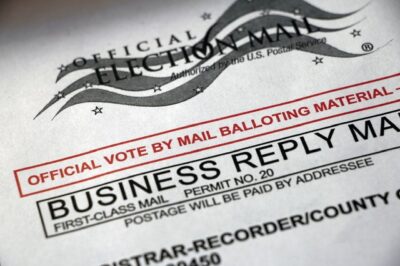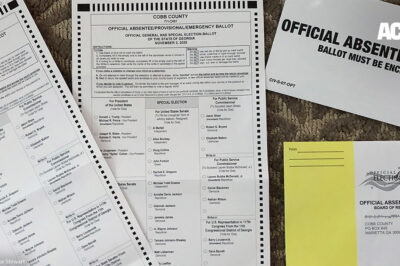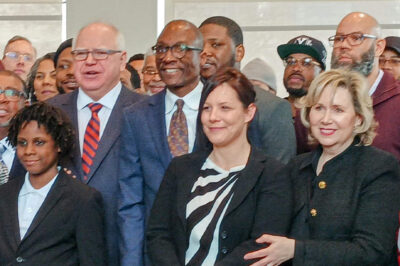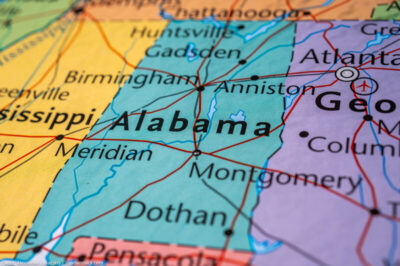ACLU of New Jersey Election Day Report Calls for Reform of Voting Systems
FOR IMMEDIATE RELEASE
CONTACT: media@aclu.org
NEWARK – With citizens headed to the polls for primary elections, the American Civil Liberties Union of New Jersey and the League of Women Voters of New Jersey today released a report highlighting significant concerns about New Jersey’s voting systems and made recommendations for changes to improve voting rights in New Jersey after reported problems during the November 2006 general election.
“We believe New Jerseyans deserve an election system that serves the voter,” said Deborah Jacobs, Executive Director of the American Civil Liberties Union of New Jersey. “We need to make up for lost time in voting rights reform in New Jersey, and call on our state and county election officials to address the problems identified by voting rights advocates.”
The report, Snapshot of November 2006 Election Day Problems and Recommendations for Reform, asserts that to ensure the effective administration of elections in New Jersey, the state needs to establish systems for individual voters to complain or appeal when they encounter obstacles to exercising their voting rights. The state also needs to proactively monitor overall voting systems to assess and correct problems before they threaten the integrity and fairness of elections.
“Election Day is a time to remember that voting is the most basic right in our democratic system and one that our state government should do the utmost to protect,” said Danzey Burnham, Executive Director for the League of Women Voters of New Jersey. “As citizens in a democracy we ought to expect a transparent and efficient election system, yet our state has much work to do to achieve that goal.”
Regrettably, as the report points out, New Jersey neither maintains public records of voter complaints nor provides post-election analysis to identify ongoing problems with the administration of elections. The state has no system to gather the information needed to monitor elections. Without systems for monitoring and analysis of election voter complaints, any state or county efforts to identify and address the most pressing voting problems becomes mere guesswork.
Advocacy groups have tried to fill the void. In connection with the November 2006 general election, the ACLU of New Jersey and LWVNJ, organizations with long histories of voting rights advocacy, organized a nonpartisan Voter Protection Hotline to provide immediate assistance to voters needing help.
Unlike anything offered by the state Division of Elections, the organizations had trained volunteers available to answer toll free calls from voters from 6 a.m. until after the polls closed at 8 p.m., as well as to provide support at some polling places and courts. Through this effort, coordinated with the Lawyers’ Committee for Civil Rights, these nonprofit organizations responded to more than 200 calls for help and information.
Such efforts provide a snapshot of obstacles that voters encounter in New Jersey. One of the central problems identified in the ACLU-NJ/LWVNJ report is inconsistent implementation from county-to-county of existing rules. Due to the state’s failure to fully implement provisions of the Help America Vote Act (passed with the intention of preventing another situation like the 2000 Florida election debacle), New Jersey voters’ experiences vary widely, depending on where they are trying to vote. More than 33 percent of voters who called in or were interviewed at the polls experienced problems with the voter registration process.
Voters reported continuous and intimidating police presence at New Brunswick and Monmouth County polling sites. Unfortunately, this problem was exacerbated by the state’s failure to clarify its policies on “electioneering.” At some sites, police kept nonpartisan poll monitors and members of the press 100 feet from polling places, a restriction that should apply only to electioneers (campaign workers trying to influence voters’ decisions before they vote). This problem was brought to Attorney General Stuart Rabner prior to the election, in September 2006, and still has not been rectified by the state.
Because New Jersey does not document and publicly report on election problems, there is no way of knowing whether the state is adequately addressing the issues identified as part of Voter Protection 2006. As with past elections, the ACLU-NJ and the LWVNJ will release their report, including suggestions for improvements to voting systems in New Jersey, to the attorney general, New Jersey’s chief elections officer.
Stay Informed
Every month, you'll receive regular roundups of the most important civil rights and civil liberties developments. Remember: a well-informed citizenry is the best defense against tyranny.



